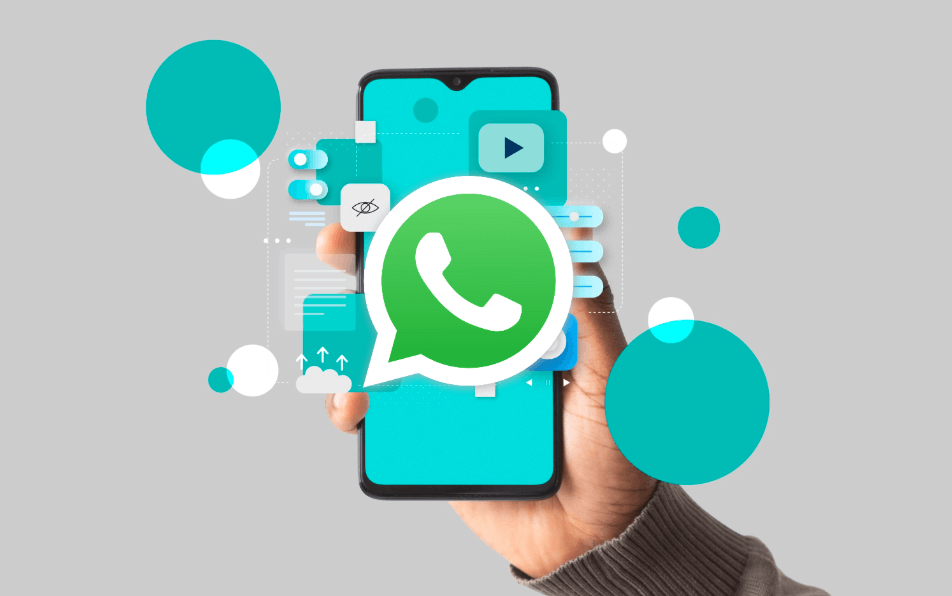Never Forget to Log Out: Protecting Your Privacy on WhatsApp Web
In our connected world, it’s instantaneous information exchange. Because that ‘s why things like WhatsApp Web have made it that much easier to stay in touch across different devices now – just send a QR code to connect your phone to a computer, start typing, send files and even manage conversations on a big screen. Though you’re getting a lot out of it with this technology, remember: some things you should be careful of aren’t. Especially when it comes to how you log out from WhatsApp Web. Fail to log out can leave you open to innocent eye in this article, we explain why it’s important to log out (and how to prevent this from happening).
The Growing Popularity of WhatsApp Web
Millions of people around the world now use Masuk WhatsApp Web to manage communications when they are working or studying on desktops. Many of those using it also need to work while conversing much to the delight of those in the office who must balance different forms of communication throughout the day. But what makes the service easy to access is the very real problem of potential threats, since sessions may be opened when they are on shared or public computers.
The Hidden Dangers of Staying Logged In
One of the most serious breaches to privacy: not logging out after you’ve used your WhatsApp Web login. If you’re using a communal workplace computer or a laptop in a cybercafé, if you don’t log in when you log out another user can see your chat history and access your media; they may be able to impersonate you. And in a world in which online identity has tight, often overlapping, correlations with individual and professional credibility, all that might come a bit too far.
How to Log Out Safely Every Time
You can easily forget to log out of your phone after joining via a WhatsApp Web account. There’s an easy method you can use to do this: Open the 3-dot menu in the web interface and click “Log Out”. You can also remotely close any active sessions from your phone by going to the “Linked Devices” section, which can be found under “Add a Device”.
Public vs. Personal Devices
It’s especially important to log off after your WhatsApp Web login when using public or shared computers. At home it’s less of an issue if you have your own personal laptop, but at work or in public the risk is even greater. Even if you trust your colleagues, leaving an active session could miss out on your private/professional conversations by unexpectedly leaving. Make public computers your highest risk, and ensure you log off immediately after using them.
See also: Best Power Bank 10000mAh for Daily Commuters in Pakistan
Enable Extra Security Features
WhatsApp also recently started adding some new features related to the security of the WhatsApp Web login. These include notifications that are sent to your phone when you make a new connection so that you can check for suspicious activity on your account very quickly. Allowing two-step verification for your WhatsApp account adds another layer of security for you. You can’t just try to re-link your account with your PIN without your PIN.
Remote Logout for Peace of Mind
If ever you don’t remember to logout after you’ve signed into WhatsApp via the Web, don’t panic. WhatsApp allows you to see all active sessions right from your phone. Under “Linked Devices” you’ll find a list of computers that are currently connected to your account. Tap on one of them to log out online. This takes care of a human error in another way.
Best Practices for Long-Term Privacy
In order to protect your privacy on WhatsApp Web login, it’s all about maintaining good habits. Make sure you always log out after each session, avoid keeping yourself signed in on public devices (if using on someone else’s device) and always check connected devices periodically. Also be sure your browser is secure and you download the latest antivirus software.
Final Thoughts
Easy is often more effective than privacy. When you use WhatsApp Web login, it’s easy to share personal and professionally sensitive data across devices. But should we forget to log out? Well after you’ve logged in, it’s a small but important step to keep your information safe and secure. Be it at your workplace, in the library or when checking email on a friend’s laptop, please remember to log out: your digital privacy belongs to you.






